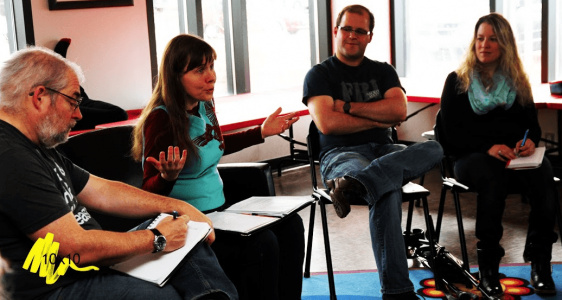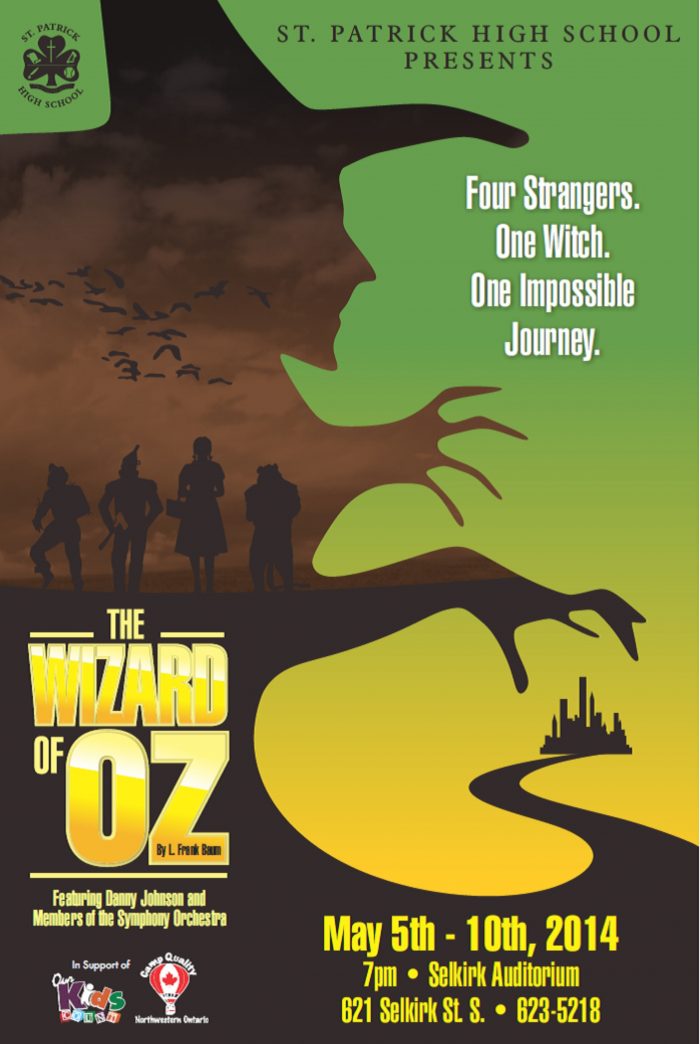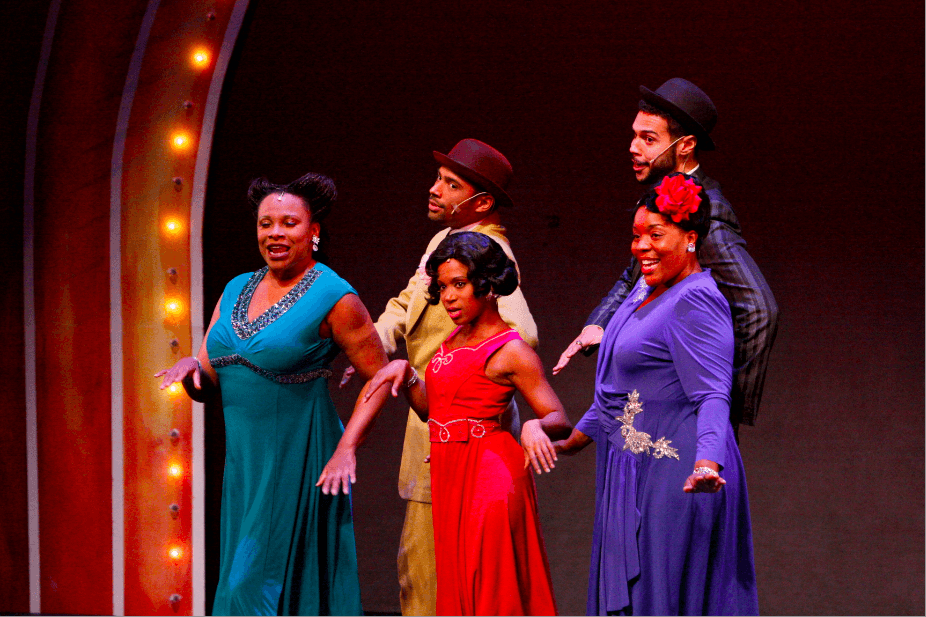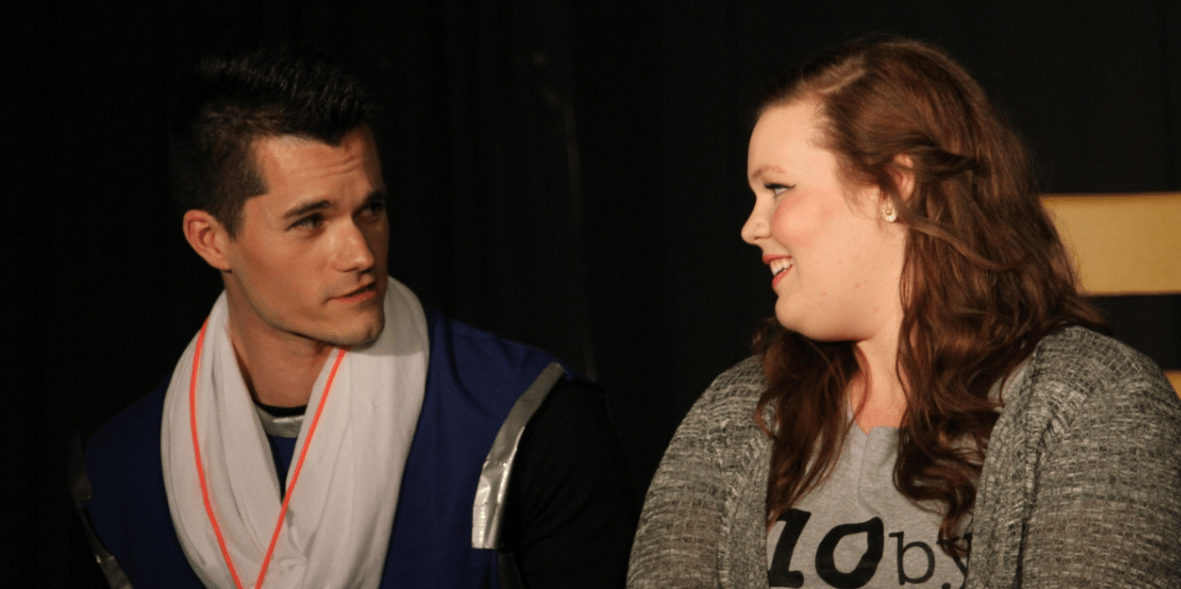Story by Cathi Grandfield, Photos by Marty Mascarin
When Debbie Patterson’s ability to move became severely limited by multiple sclerosis (MS), she quit acting. Her peers in the theatre community agreed that her career was over because she could no longer walk “normally.” But now she feels her disability gives her an edge as an artist. “It gives me an insight into an aspect of the human condition that most of us don’t get to see, but that I think is universal, because we’re all just temporarily able, right? We’re all vulnerable. Being able to see that vulnerability from inside is a really cool perspective and a gift.”
Patterson read from a variety of her original works on December 4th to a packed house at CommuniTea & Coffee in Thunder Bay. The next day, she facilitated a directing workshop at Mary J. L. Black Library hosted by the 10×10 Play InTENsive.
Patterson’s theatre career began at age 11 when she performed with Britain’s Prince Andrew in a production of Oliver at a private boys’ school in Lakefield, Ontario. In 1980, she moved to Thunder Bay, where she studied drama at Port Arthur Collegiate and performed with Cambrian Players, Magnus Young Company, and Kam Theatre Lab. She contributed songs and sketches to the annual “Healthy Sex Cabaret,” even after going on to study at the National Theatre School in Montreal. She chose to pursue her career in Winnipeg because of the vibrant theatre community and the low cost of living. “I wanted to do theatre, not wait tables.”
In Winnipeg, Patterson thrived as an actor, director, composer, and playwright. She is a founding member of Shakespeare in the Ruins, a former Artistic Director of the Popular Theatre Alliance of Manitoba, and a current Artistic Associate of the Prairie Theatre Exchange. When MS began to affect her movement, she changed her focus to playwriting for a few years, then tried to continue performing by working around her disability. “I would enter in a blackout, sit in a chair, hide my cane, and do the play as if I thought I was fooling someone.”
Dramaturge Iris Turcott saw Patterson perform Sargent & Victor, an original work set in a disadvantaged area of Winnipeg, and challenged her to write about her MS. “What’s happening to your body is what’s happened to that neighbourhood. You have to write about it.” Patterson took up the challenge. The play became Sargent & Victor & Me.
Patterson feels that people with disabilities often don’t develop as artists because they are not given the opportunities. “If I was moving the way I move now, I would never have gotten into theatre school.” She senses that some people believe disability is the last justifiable bias. “Just as people used to think women were actually inferior, so it was okay to discriminate, some still believe that people with disabilities are actually inferior. In some ways, it’s true. I can’t walk as fast as someone else, but there are probably twelve things I can do that most people can’t, so who’s disabled there?”
In order to champion disability art, Patterson has formed a new company called Sick & Twisted and created a cabaret, “Lame Is,” which will redefine disability through song and dance. Artists will create their own pieces with the support of mentors to help them develop their artistic strengths. “I want artists with disabilities to speak their truth, but to have the mentorship to help them do that skillfully. The last thing you want is to make bad art, so that we reinforce the idea that people with disabilities can’t do art.”
In 2016, Patterson plans to bring a remount of Sargent & Victor & Me to Thunder Bay. She’s also working on How It Ends, a play about end of life choices. “I think theatre is really important because we’re in the same room, breathing the same air. Especially when an actor speaks onstage, they are using their body to create vibrations, and those vibrations travel through the air and enter the body of the audience,” she says. “It’s really intimate and physical. I think you can connect with your audience in a way that film can’t. It allows us to understand each other better. Ultimately, I think theatre exists to build empathy in our world.”
Debbie Patterson’s 10×10 events were generously supported by the Playwrights’ Guild of Canada and the Ontario Arts Council.
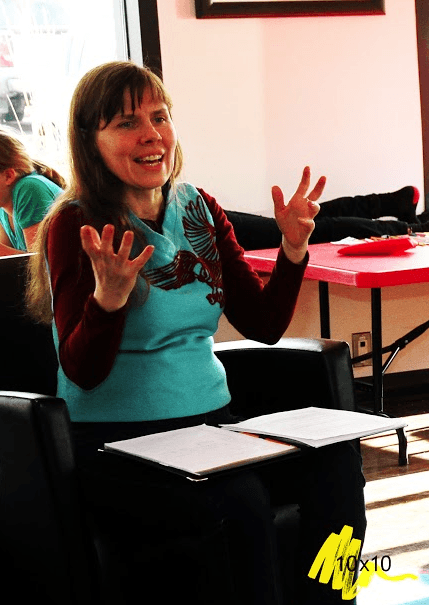
Debbie Patterson at a 10×10 theatre workshop in Thunder Bay


